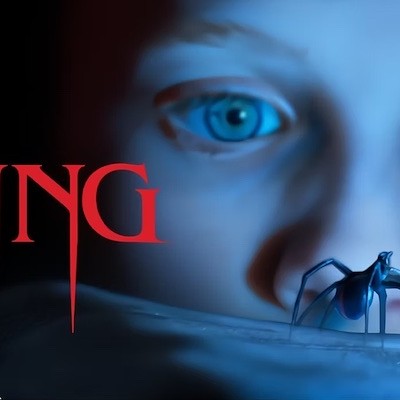Voted the best bandoneonist (player of a type of small accordion) under 25 in Argentina when he was only 17 years old, Hector del Curto is today a world-class musician. He has played with most of the biggest names in tango, from pianist Osvaldo Pugliese to fellow bandoneonist Astor Piazolla. Representing this year's theme country Argentina, Del Curto's current project Eternal Tango will perform at the Houston International Festival on the Center Stage April 21, 22 and 29. We caught up with the 41-year-old maestro at his home in New York City.
Art Attack: We are always fascinated by people who decide very early on what they want to do, then stick to it and master it.
Hector Del Curto: [Laughs] It was not my decision. I never thought, "I will be a famous tango musician" or anything like that. I started learning guitar when I was five, and switched to bandoneón when I was 11. But I just liked to make music. The other kids thought I was odd because I would stay in and practice when they were outside playing.
AA: Did you grow up in a musical family?
HDC: Well, my great-grandfather was a bandoneonist, and my grandfather played.
AA: But your father didn't follow in their footsteps?
HDC: He tried to for about a year, but it didn't work out and he did something else.
AA: How did you come to reside in New York City?
HDC: I came to do Forever Tango on Broadway. We performed it for a year and a half. When they took it somewhere else, I just stayed here.
AA: Your wife is also your cellist.
HDC: [Laughs] Well, yes, she is. What is funny about that, I met her when she came for an audition. We needed a cellist quickly to fill in and I put the word out. When she came in to audition, she said, "I only got to rehearse this about 30 minutes," which I thought was an odd and disquieting thing to say. But when she started to play, it was as if she had played tango all her life. I didn't find out until later that she had been riding around listening to a cassette of one of our shows for five years before I met her.
AA: Was she a classical musician?
HDC: She went to Juilliard for her cello studies. She was at Juilliard when she auditioned with us.
AA: You were picked by the greats to play in these amazing, groundbreaking orchestras when you were so young. How did you manage to maintain your humility and not get the big head?
HDC: I never thought I was ready when those calls came. And as a musician, you are constantly waiting for the next call. I knew I was playing with very famous, very serious people, but I always just focus on the job, on the music, hoping I will get called again.
AA: Formal structure seems very important in tango. How much room is there to improvise, or is that not done?
HDC: Tango is divided into two groups or styles, traditional and new. In traditional style, there is a bit of improvisation with embellishments. In new tango [nuevo tango], Piazolla and his pianist Pablo Ziegler brought in improvisation, so new tango has more of a jazz feel. In Eternal Tango, we do both. I've been doing both all my life.
AA: You've been in tango virtually your entire life and certainly all of your adult life. Is tango more popular today? What do you see as the trend?
HDC: Tango is worldwide today. There are more musicians playing tango today, there are more musicians studying tango. So, yes, it is growing in popularity and acceptance all the time, it seems to me. You know, my wife is Korean but she learned to tango when she was living in New Zealand. Her mother also had learned tango in Korea. Tango really is in every corner of the world now.
Eternal Tango performs at the iFest Center Stage: April 21, 2:30 p.m. April 22, 4:30 p.m. and 6:30 p.m. April 29, 2:30 p.m. and 6:30 p.m. The quintet will also play a ticketed show April 21 at the Hobby Center, 800 Bagby, 7 - 11:30 p.m.





